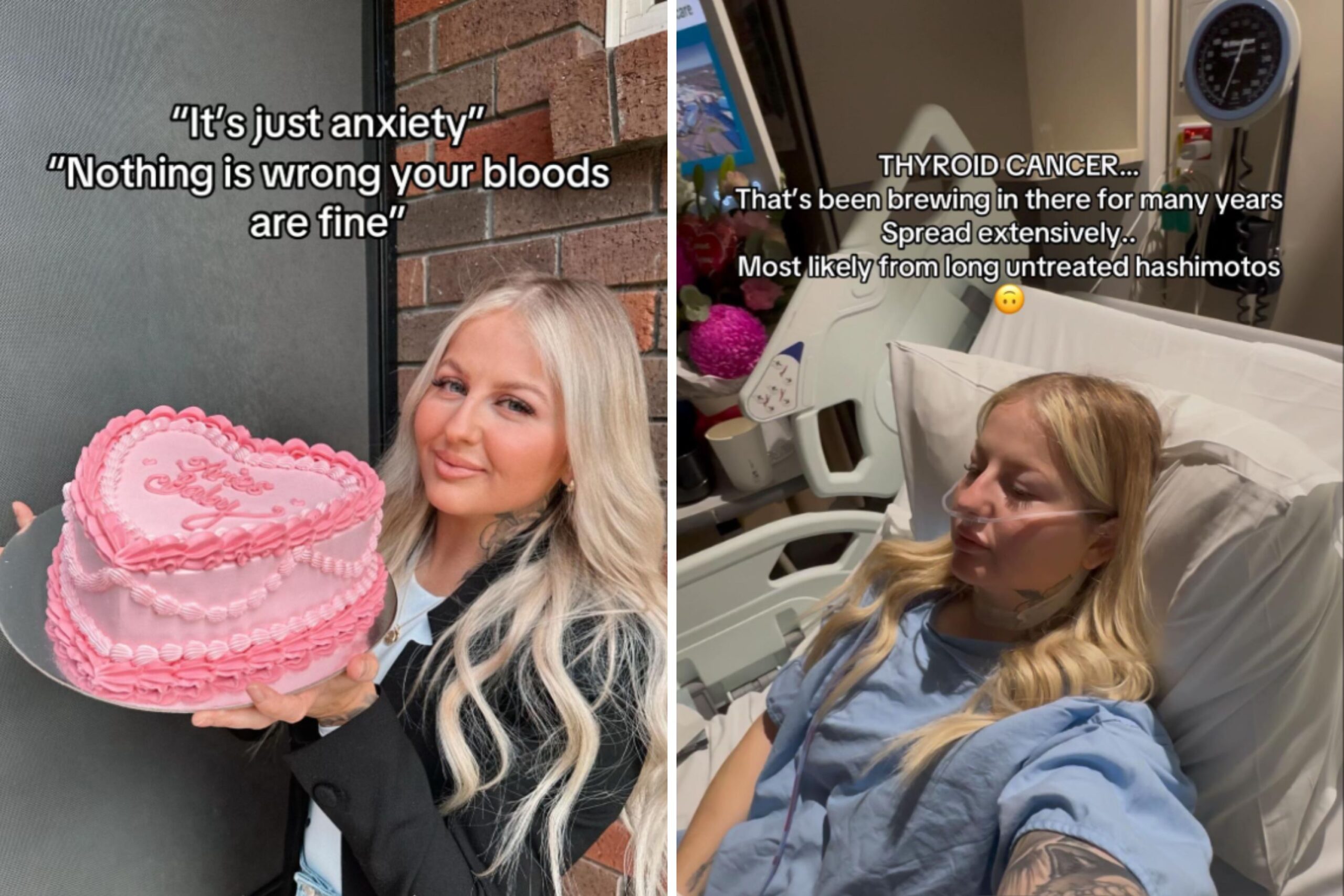
For Tameika McBride, years of unexplained symptoms were consistently dismissed by medical professionals.
She was told her issues were simply anxiety, but, deep down, she knew something more was wrong. The shocking truth came after a scan revealed a devastating diagnosis: McBride, 30, had thyroid cancer. She told Newsweek about the revelation she shared in a TikTok video and her treatment so far, emphasizing what she wishes she knew in the early days of her symptoms.
McBride said her symptoms began in her young teen years and included anxiety, hair loss, dry skin, fatigue, brain fog, heart palpitations and unexplained weight gain. She also experienced tingling toes, a swollen lymph node and even near-fainting episodes.
@tameikamcbride/TikTok
The truth came in January when she was just 29. McBride went to an appointment to receive ultrasound results.
“I just sat in shock when the doctor told us it was cancer,” she said. “I had gone to my appointment for my ultrasound results on my own because I didn’t believe it was going to be this bad.”
The news was devastating for her family. “We had lost my mother-in-law to cancer, so we were automatically terrified of the worst outcome,” McBride said.
An Expert’s Perspective on Misdiagnosis
McBride’s story is not unique, as board-certified emergency medicine physician Ellana Stinson told Newsweek that she also received a dismissive initial diagnosis for her own papillary thyroid cancer.
Stinson added that this is a systemic issue. “It is not uncommon for women, and particularly women of color, to have their concerns minimized or misdiagnosed,” she said.
Stinson added that symptoms such as fatigue, hair loss and weight changes are often labeled “stress” or “anxiety” instead of prompting a thorough medical workup.
“Women’s health complaints have historically been attributed to emotions or mental health, rather than investigated fully,” Stinson said. She added that anxiety should always be a “diagnosis of exclusion,” meaning it is confirmed only after ruling out other possible medical causes.
A Grueling Medical Journey
After her diagnosis, McBride underwent a full thyroidectomy and a left modified radical neck dissection, where 34 lymph nodes were removed. It was after the surgery that she received more bad news: the cancer was a rarer, more-aggressive kind called diffuse sclerosing variant. It was found in her blood vessels and lymphatic system, and 12 of the 34 lymph nodes were cancerous. McBride also learned she had Hashimoto’s disease, an autoimmune disease she believes is connected to her cancer.
In June, McBride underwent iodine radiation treatment, a challenging experience where she had to be “radioactive” and stay in the hospital away from her family. A post-body scan revealed two new cancerous lymph nodes, but they absorbed the radiation. She is being monitored, but doctors have mentioned the possibility of another round of treatment.
A Call for Patient Advocacy
Now, McBride’s mission is to help others advocate for their own health. She looks back and sees many missed signs. She shared that, during her first pregnancy, she was put on thyroid medication, but a doctor didn’t think to look into it further. “They just do the bare minimum,” McBride said.
Her message to anyone who feels unseen and unheard is clear: “Push and don’t stop,” she said.
Stinson echoed this sentiment. “My advice to patients who feel unheard is trust your instincts about your body,” she said. “If something feels wrong, advocate for yourself.”
She added that asking for a second opinion is not being “difficult,” but being thorough. The doctor’s message to her fellow physicians is a call to action: “As physicians, we must resist the urge to take the ‘easy’ explanation … Anxiety is real and common, but it should never be the default label when a patient is clearly experiencing ongoing, unexplained physical changes.”
